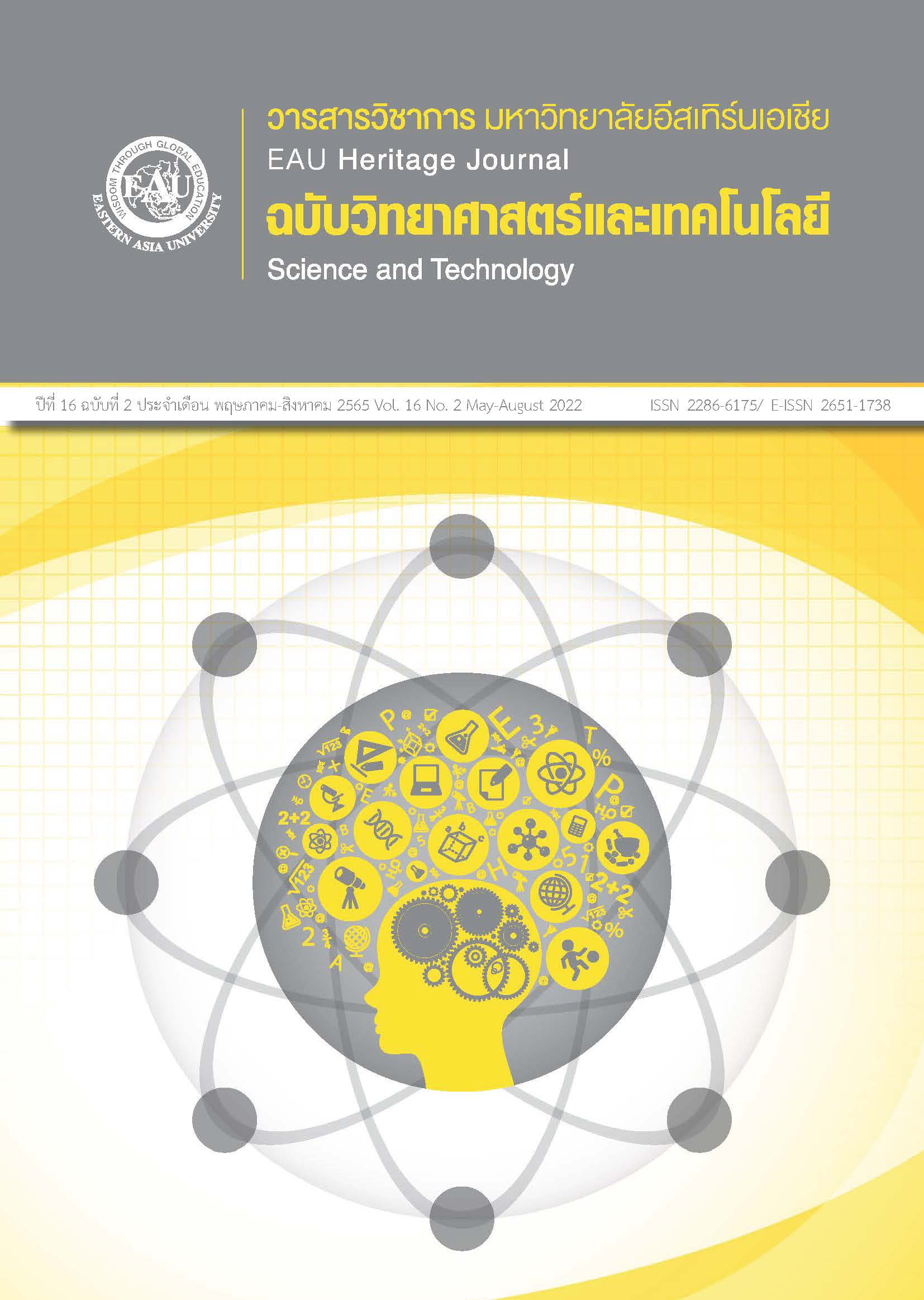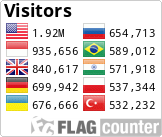การเพิ่มศักยภาพการจัดการความรู้และนวัตกรรมเพื่อการพัฒนาเศรษฐกิจฐานรากด้วยดิจิทัลแพลตฟอร์มสำหรับมหาวิทยาลัยเทคโนโลยีราชมงคลอีสาน
คำสำคัญ:
การจัดการความรู้และนวัตกรรม, ดิจิทัลแพลตฟอร์ม, เศรษฐกิจฐานรากบทคัดย่อ
การวิจัยครั้งนี้ เป็นการวิจัยประเภทปฎิบัติการ มีวัตถุประสงค์เพื่อ (1) พัฒนาดิจิทัลแพลตฟอร์มเพื่อเพิ่มศักยภาพการจัดการความรู้และนวัตกรรม (2) ประเมินประสิทธิภาพและการยอมรับดิจิทัลแพลตฟอร์ม การออกแบบดิจิทัลแพลตฟอร์มดำเนินการ
ออกแบบและวิเคราะห์ระบบภายใต้รูปแบบการทำงานวิจัยและงานบริการวิชาการของ มหาวิทยาลัยเทคโนโลยีราชมงคลอีสาน ข้อมูลที่ใช้ประกอบด้วย ข้อมูลนักวิจัยและงานวิจัย ข้อมูลผู้เชี่ยวชาญ ข้อมูลชุมชนและปราชญ์ปราชญ์ชุมชน ข้อมูลเครือข่ายการดำเนินงานทั้งภาครัฐและภาคธุรกิจ กลุ่มตัวอย่าง ประกอบด้วย ผู้เชี่ยวชาญด้านเทคโนโลยี จำนวน 3 ท่าน ผู้ทรงคุณวุฒิด้านเทคโนโลยีดิจิทัล จำนวน 3 ท่าน และ ผู้บริหารมหาวิทยาลัย จำนวน 5 ท่าน เครื่องมือในการวิจัยได้แก่ แบบประเมินประสิทธิภาพของระบบ และ แบบประเมินการยอมรับระบบ สถิติที่ใช้ในการวิเคราะห์ข้อมูลได้แก่ ค่าเฉลี่ย และส่วนเบี่ยงเบนมาตรฐาน ผลการออกแบบและพัฒนาดิจิทัลแพลตฟอร์ม พบว่า ดิจิทัลแพลตฟอร์ม ประกอบด้วย 11 โมดูล และผลการประเมินประสิทธิภาพดิจิทัลแพลตฟอร์ม พบว่า (1) ส่วนงานหน้าบ้านแพลตฟอร์มมีประสิทธิภาพ อยู่ในระดับมาก ด้วยค่าเฉลี่ยเท่ากับ 4.23 (SD=0.88) ส่วนงานหลังบ้านแพลตฟอร์มมีผลประเมินประสิทธิภาพ อยู่ในระดับมาก ด้วยค่าเฉลี่ยเท่ากับ 4.38 (SD=0.28) ผลการยอมรับของผู้บริหาร อยู่ในระดับมากที่สุดด้วยค่าเฉลี่ยเท่ากับ 4.80 (SD=0.40)
เอกสารอ้างอิง
Baran, G., & Berkowicz, A. (2021). Digital Platform ecosystems as living labs for sustainable entrepreneurship and innovation: A conceptual model proposal. Sustainability, 13(11), 6494. https://doi.org/10.3390/su13116494
Barnes S. (2021). Radical knowledge management: Using lessons learned from artists to create sustainable workplaces. Front Artif Intell, 13(4), 598807. doi: 10.3389/frai.2021.598807.
Botha, D. (2019). Knowledge management and the Digital native enterprise. South Africa: Deloitte & Touche
Calabrese, M., La Sala, A., Fuller, R. P., & Laudando, A. (2021). Digital Platform ecosystems for sustainable innovation: Toward a new meta-organizational model. Administrative Sciences, 11(4), 119. https://doi.org/10.3390/admsci11040119.
Carneiro, A. (2000). How does knowledge management influence innovation and competitiveness?. Journal of Knowledge Management, 4(2), 87-98. doi:10.1108/13673270010372242
Duanguppama S., Phuworakij P., and Donsophon K. (2021) The guidelines for product innovation management to enhance crop value added for jujube growers in Kalasin Province. Sripatum Review of Humanities and Social Sciences, 21(2), 44-55. (in Thai)
Frias-Navarro, R., & Montoya-Restrepo, L. A. (2020). Understanding knowledge creation processes among rural communities in post-conflict settings in Colombia. Knowledge Management & E-Learning, 12(2), 231-255. https://files.eric.ed.gov/fulltext/EJ1263335.pdf
Idris, M. & Durmuşoğlu, A. (2021). Innovation Management Systems and Standards: A systematic literature review and guidance for future research. Sustainability, MDPI, 13(15), 1-31. https://doi.org/10.3390/su13158151
Kewsuwun, N., Jaitiang, T., & Bamroongkit, S. (2020). Knowledge management for the digital organization in disruptive technology era. Silpakorn University Journal, 40(4), 120-135. (in Thai)
Nawab, S., Nazir, T., Zahid, M., & Fawad, S. M. (2015). Knowledge management, innovation and organizational performance. International Journal of Knowledge Engineering, 1(1), 43-48. doi: 10.7763/IJKE.2015.V1.7
Obeidat, A. M. (2019). IT adaption with knowledge conversion process (SECI)?. Management Science Letters, 9(13), 2241-2252. doi: 10.5267/j.msl.2019.7.029.
Pengmol T, Kanlaya S, & Wita N. (2018). Cultural knowledge management for sustainable tourism. Journal of Local Governance and Innovation, 2(3), 93-105. (in Thai)
Petana, G., & Rosa, C. (2020). Digital transformation and the impact in knowledge management. In Proceedings of the 12th International Joint Conference on Knowledge Discovery, Knowledge Engineering and Knowledge Management (IC3K 2020) (pp. 180-187). German: Schloss Dagstuhl-Leibniz Center for Informatics (German: Schloss Dagstuhl-Leibniz-Zentrum für Informatik GmbH). https://www.scitepress.org/Papers/2020/101340/101340.pdf
Romero-Hidalgo, J. A., Isiordia-Lachica, P. C., Valenzuela, A., & Rodríguez-Carvajal, R. A. (2021). Knowledge and innovation management model in the organizational environment. Information, 12(6), 225. https://doi.org/10.3390/info12060225
Visvizi, A., Troisi, O., Grimaldi, M., & Loia, F. (2022), Think human, act digital: activating data-driven orientation in innovative start-ups. European Journal of Innovation Management, 25(6), 452-478. https://doi.org/10.1108/EJIM-04-2021-0206
Wiatrak, A. (2019). Knowledge and innovation management in agribusiness. Roczniki (Annals), 2019(3), 302804. doi: 10.22004/ag.econ.302804
Worapongpat, N, Wachirawongpaisarn, S., & Phakamach, P. (2021). The development of a Digital Platform for business economic courses using a problem-based learning management model for undergraduate students of the Faculty of Business Administration. Journal of Liberal Arts and Service Industry, 4(2), 427-442. (in Thai)







